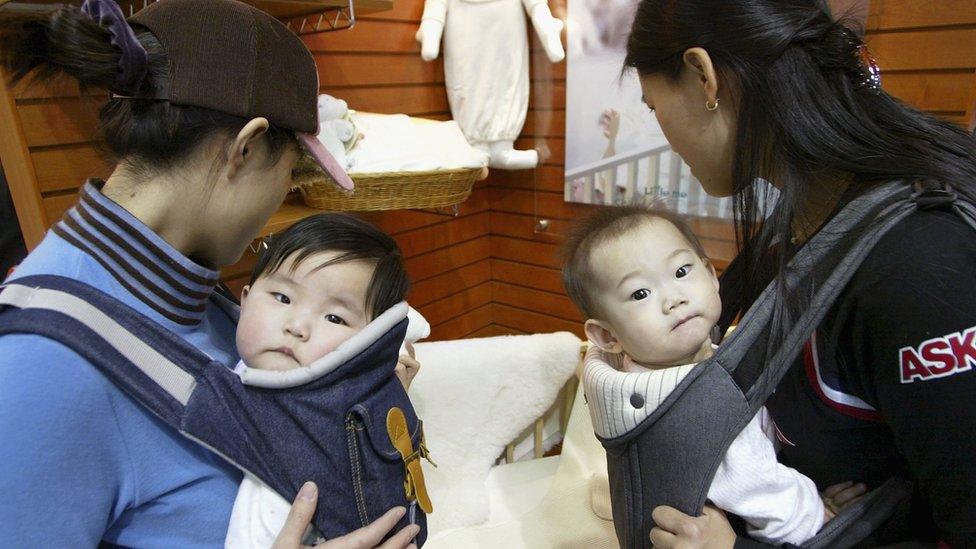South Korea's new drive to boost flagging birth rate
- Published

Government efforts to encourage a baby boom have so far failed
South Korea's government has announced a host of measures to encourage people to make more babies, as concerns grow over the country's stubbornly low birth rate.
Couples seeking fertility treatment will get state financial support regardless of their income level from September, the Korea Herald reports, external. The help is currently limited to lower-income couples, but the change means everyone will now be eligible for at least 1m won ($900; £680) per session, with the lowest earners receiving 2.4m won.
South Korea's birth rate has plummeted since the 1960s, external, with little change in recent years despite billions of dollars in government spending. Health Minister Chung Chin-youb says "all possible efforts" must be made to reverse the decline.
Other measures announced include a guarantee of three days unpaid leave for those receiving fertility treatment, effective from July next year, and increased paternity leave payments for fathers welcoming a second child. Households with three or more children will also be given priority admission to public childcare facilities, the paper says.
In the first five months of 2016, births were down by 5.3% compared to the same period last year, the Korea Times reports, external. Critics of the government's approach say the problem isn't money but rather South Korea's corporate culture, where employees are often expected to work long hours and don't feel they can take time off for childcare.
Next story: Swedes urged to deposit 41m invalid banknotes
Use #NewsfromElsewhere to stay up-to-date with our reports via Twitter, external.